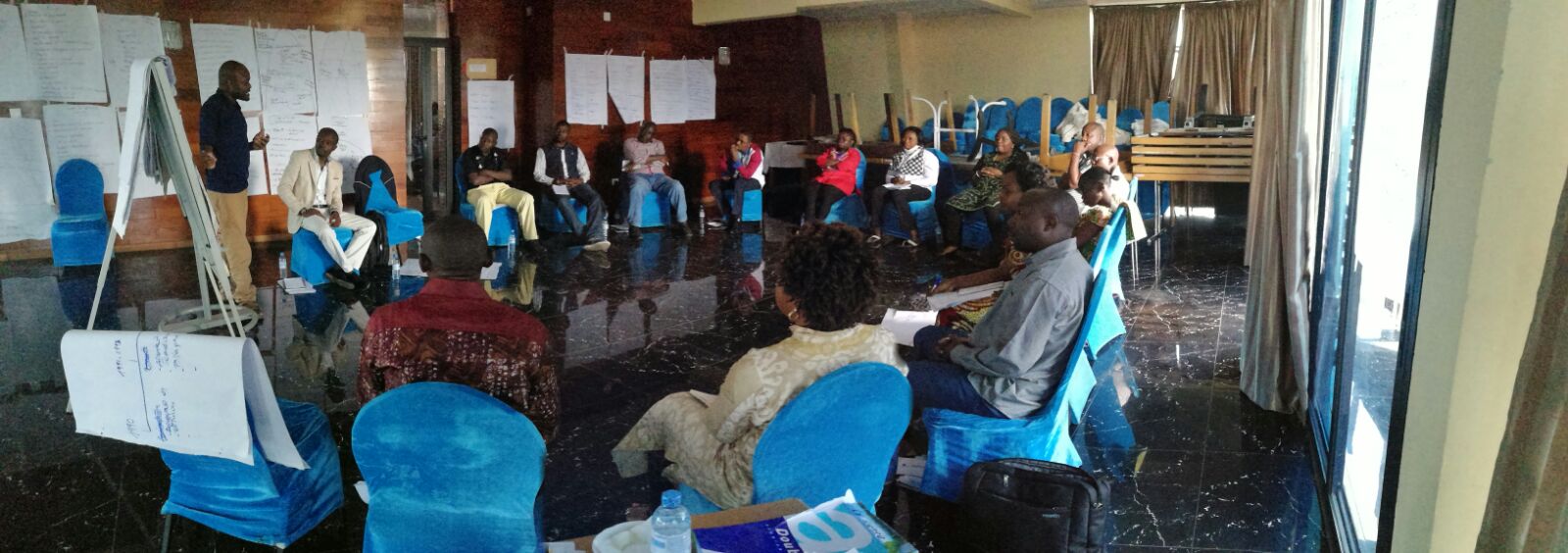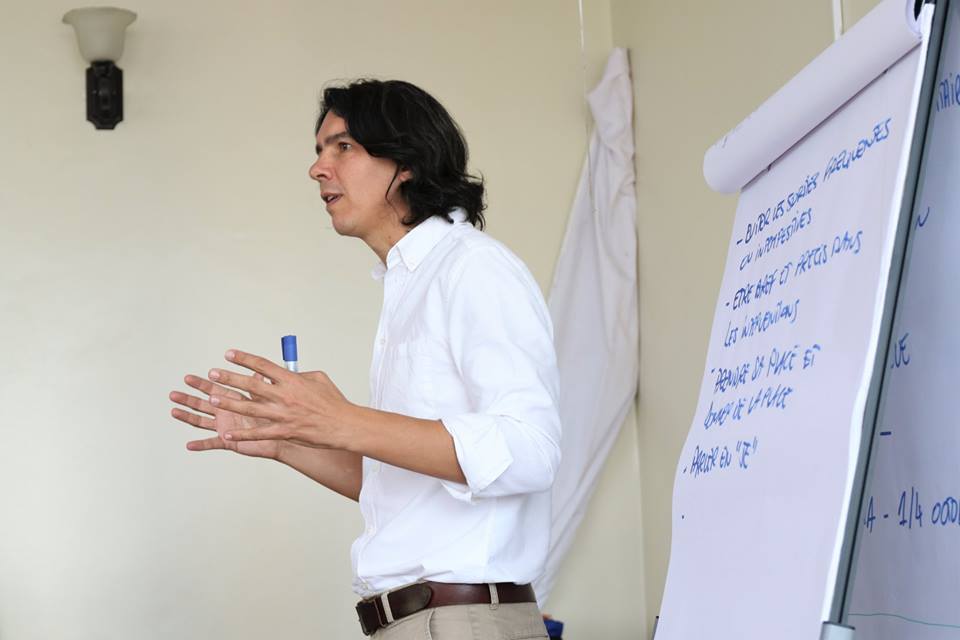In a global context where protection of civilians is being increasingly threatened and access to most-in-need populations contested, national, and international actors are bound to explore new interventions to meet those challenges: How to reduce violence against civilians, prevent forced displacements, and facilitate returns? How to engage with armed groups, state actors, and communities to increase acceptance and access in high-risk areas? How to prevent and decrease tensions between host and displaced communities in conflict contexts? How to facilitate inclusive dialogue processes to promote a greater participation of communities in project design, planning and implementation? How to foster accountability, promote constructive dialogue between international actors, and communities when disagreements arise?
COURSE SUMMARY:
The aim of the Humanitarian Negotiation and Mediation course is to provide humanitarian aid workers and peacemakers working in conflict contexts with practical knowledge, tools and skills to design, plan, and conduct mediation and dialogue facilitation processes aimed at:
The processes presented during the training will also be useful for personnel involved in protection mainstreaming and safe programming activities such as:
Participants to previous sessions of the course reported that it is also very useful in their daily management of tensions arising between colleagues at work, at home with family members, and in their overall social life.
Mode of delivery:
Course length:
Dates and location:
17th to 21st of June in Nairobi.
Award received:
NOHA Certificate
Audience:
Civil personnel for the Department of Peace Keeping Operations (DPKO) involved in protection of civilians and civil affairs are also encouraged to apply.
Language of Instruction:
English

OVERVIEW:
Protection and Access
Humanitarian access and protection are the most pressing challenges of current humanitarian action. While humanitarian actors are increasingly efficient in providing assistance to people who have been affected by conflict, they are to a much lesser degree active and effective in assisting civilians in hard-to-reach areas and pro-actively preventing populations from harm.
Problems and concerns in humanitarian access and protection have various causes and take different forms, from imposing legal and administrative burdens on civilians and humanitarian actors to the bombing of hospitals. Armed violence conducted by governments, non-state armed groups and communities are among the most important challenges humanitarian organisations are facing. Improving protection and access therefore requires engaging with those actors, with the specific aim of improving access to life saving relief and assistance and reducing the level of violence between and towards civilians, as well as towards humanitarian actors.
While humanitarian organisations are faced with these challenges on a daily basis, they are often not equipped to appropriately address them. By mainly focusing on providing relief and assistance, they have not necessarily developed the tools and capabilities needed to tackle these specific challenges, which include advocacy, negotiation and mediation.
Humanitarian Mediation and Dialogue Facilitation
While humanitarian negotiations are common practice within the humanitarian sphere, the field of humanitarian mediation, and of mediation carried out by humanitarian actors in emergency contexts, for long overlooked, is also gaining momentum.
Mediation, understood as a voluntary process by which a third party neutrally assists conflicting parties to establish or re-establish communication so that they can find a solution to their problem by themselves, is a proven methodology that contributes to reduction in violence, and therefore to improved protection. One striking fact is that the four humanitarian principles of humanity, impartiality, neutrality, and independence, which the large majority of humanitarian actors abide to, are similar to the principles of third-party mediation. In theory, this may lead to the conclusion that humanitarian organisations should potentially excel at mediation and perform better in some circumstances than political bodies such as states or the United Nations, whose political identity and mandates may affect their capacity to be perceived, and sometimes act, as neutral third parties in mediation processes. Not only has the similarity between neutral third-party mediation principles and humanitarian principles largely remained unnoticed, its potential for new venues in the field of protection and access are unexplored.
ORGANISERS:
The NOHA Network on Humanitarian Action is an international association of universities that aims to enhance professionalism in the humanitarian sector, by promoting humanitarian values and providing certificated high-level courses.

Training Facilitator:
Jérôme Grimaud is a humanitarian worker and an accredited mediator with twenty years of field experience. He devoted his first missions to protective accompaniment in Central America and to frontline negotiations in the Middle East before becoming a delegate of the International Movement of Red Cross and Red Crescent Societies. He gradually specialized in the field of protection, conflict sensitivity, humanitarian access as well as humanitarian negotiation, mediation and dialogue facilitation, both as a practitioner and a trainer. His humanitarian negotiation and mediation experiences range from negotiating access of medical agencies and civilians at check points in the Palestine territories to facilitating humanitarian mediation processes in the Central African Republic. For the last six years he has developed and piloted third party neutral humanitarian negotiation and mediation initiatives aiming at improving protection of civilians and humanitarian access for various NGOs, the UN Office for the Coordination of Humanitarian Affairs (OCHA) and the Red Cross. He led the Norwegian Refugee Council humanitarian negotiations and mediation programme for three years and was one of the Centre of Competences on Humanitarian Negotiations (CCHN)’s facilitators. Jerome Grimaud also worked with MSF as roving negotiation advisor. He is currently Senior Protection Advisor for the NRC/OCHA Stand by Protection Capacity Project (ProCap). In addition, he provides training for various Universities of the NOHA Network on Humanitarian Action, as well as at the Graduate Institute for International and Development Studies and Durham University.
TRAINING CONTENT:
The module programme progresses from general to specific topics:
TRAINING OUTCOMES:
Participants will learn to apply the theoretical knowhow and practical tools provided in the course and practice both mediation based on real case scenarios.
As the outcome of the training, participants will be able to:
TRAINING ASSESSMENT AND EVALUATION:
The assessment pattern reflects the training’s learning outcomes and is intended to demonstrate that participants possess the skills and knowledge required in practice.
Knowledge will be assessed through a pre-and post-training test. Participants will also receive feedback and guidance throughout the course which will enable them to make progress and develop their confidence and practical skills.
This site uses cookies to enhance user experience and to track usage statistics. For more information, see NOHA’s Data Privacy Policy.